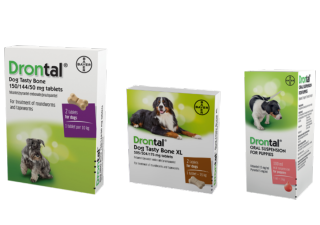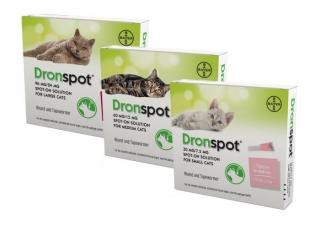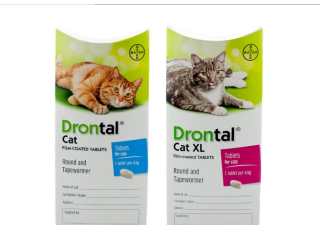Treats: Intestinal worms (roundworms, tapeworms)
Pet type: Dogs and puppies over 2 weeks
Formulation: Oral (tablet and liquid suspension)
Suggested frequency: According to product insert
It’s not always obvious that your dog has worms.
Intestinal worms are a problem that shouldn’t be ignored. Unfortunately, your dog can pick up these parasites without you even realising.



